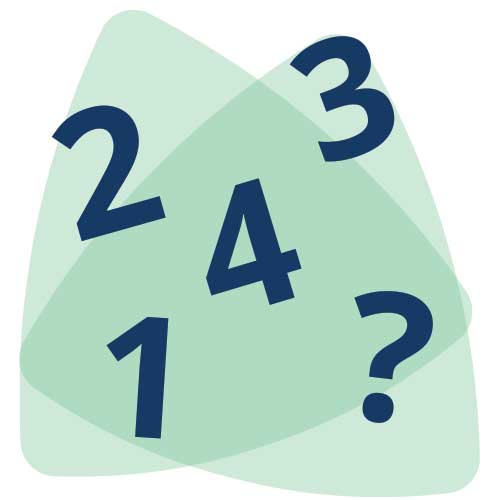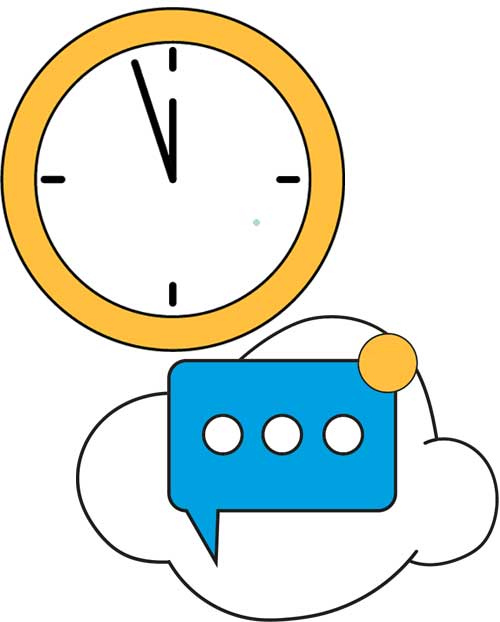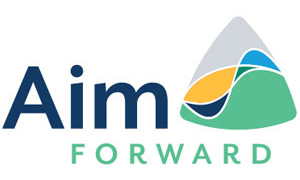Dyscalculia
Dyscalculia can affect the way you process numbers and maths, as well as other areas of your work-study and everyday life. Getting a diagnosis or support through a needs assessment can help you to explore solutions to shape your future. If you’re looking for assessments or tests for dyscalculia, explore some common questions.
Needs assessments
If you know or believe you have dyscalculia, our one-to-one online needs assessments aim to understand how you currently learn and work, then create personalised strategies and recommend assistive technologies that will help you excel.
Diagnostic assessment
Our diagnostic dyscalculia assessment can provide you with a clear and concise diagnostic report. We offer in-person or remote video assessments – appointments available within the next two weeks.
What is dyscalculia?
Dyscalculia is a specific learning difficulty (SpLD) caused by a neurological difference, meaning a difference in the way the brain works between dyscalculic people and non-dyscalculic people. Dyscalculia is a specific and significant difficulty processing numbers and maths. It is noticeably different to general challenges with numbers and maths that can be experienced by the wider population, as well as other neurodivergent people.


Around 6% of the population are estimated to be dyscalculic, often experiencing severe difficulty with:
- Counting skills
- Magnitude processing (estimating how many items you can see)
- Arithmetic (adding, subtracting, multiplying and dividing)
- Transcoding number words (such as writing down a number someone has said to you)
- Digits and quantities
- Spatial number representation (interpreting linear scales like timelines or graphs)
- Working memory
- Attention
Not all dyscalculic people will experience all of these things, all of the time, because we all have individual differences which impact the ways our brains work. Many dyscalculic people develop their own coping strategies, which can mask these difficulties at work, in their learning or in their social lives.
We don’t have as much research about dyscalculia as we do about dyslexia, but studies have observed that dyscalculic people are more likely to have one or more other neurodevelopmental conditions like ADHD or dyslexia. There is also research to suggest that there are dyscalculia subtypes with more or less severe symptoms.
What we can say confidently is that with the right strategies and support, dyscalculic children and adults can work successfully with numbers and maths.
Tests for dyscalculia and diagnosis
How is dyscalculia assessed? – Tests for dyscalculia
During a diagnostic assessment for dyscalculia you will be asked to complete several tasks. These are not pass or fail tests – they are designed to highlight indicators of a specific learning difficulty (SpLD), your cognitive profile and your strengths and weaknesses.

The following areas will be explored in tests for dyscalculia diagnosis:
- Maths skills
- Language and practical tasks
- Memory
- How long it takes you to process information
- Reading ability
- Writing and spelling skills
The diagnostic assessment also involves a background information questionnaire, which you complete before the diagnostic assessment. This provides the assessor with information about your educational background, medical history and any previous assessments.
The diagnostic assessment for dyscalculia will be provided by a qualified assessor, who is either an educational psychologist registered with the HCPC or a specialist assessor with an Assessment Practising Certificate.
How can I get tested for dyscalculia?
In the UK, dyscalculia is not a medical diagnosis. It is not assessed by medical professionals, but by educational psychologists registered with the HCPC or specialist assessors with an assessment practicing certificate.
In addition to understanding your educational background, medical history and any previous assessments, the assessor would undertake a number of tests to understand your cognitive profile and any traits of dyscalculia.
Aim Forward dyscalculia assessments cost £820 inc. VAT and can be provided in person or remotely via video call. Please get in touch today to book.
What are the benefits of a dyscalculia assessment?
Identifying yourself as being neurodivergent does not require a diagnosis and is supported by many in the neurodivergent community. Having said this, some people feel that they would benefit from having specific terms for their experiences and access to support schemes such as Access to Work and Disabled Students’ Allowance. This is because a specific learning difficulty (SpLD) such as dyscalculia is recognised as a disability under the Equality Act 2010. Completing tests for dyscalculia and getting a diagnosis can also make it easier to discuss reasonable adjustments at work or personal learning plans at school or university.
What happens during a dyscalculia assessment?
During a diagnostic assessment for dyscalculia, the assessor will talk with you about your background, but they will also ask you to complete tasks to assess your strengths and weaknesses in different areas such as:
- Maths skills
- Language and practical tasks
- Memory
- How long it takes you to process information
- Reading ability
- Writing and spelling skills
These tasks are not pass or fail – they are designed to highlight indicators of dyscalculia, your cognitive profile and your strengths and weaknesses.
What is the difference between a screener, dyscalculia testing and dyscalculia assessments?
A screener is a checklist or questionnaire that you complete yourself, usually online. It is designed to indicate whether personal difficulties or traits may be the result of a neurological difference like dyscalculia. The results do not form a diagnosis, they are only indicative. There are many different types of screening tests, and they can be a useful place to start when you are in the early stages of exploring your neurodivergence, but they cannot give you a diagnosis. They only offer limited insight into your experiences, and they are not always considered accurate.
You may also have heard about dyscalculia testing or dyscalculia assessments: these refer to the same process, which is called a diagnostic assessment. They are provided by a qualified assessor, who is either an educational psychologist registered with the HCPC or a specialist teacher with an Assessment Practicing Certificate. A dyscalculia diagnosis can provide you with more insight into dyscalculia, your cognitive profile, and how your traits impact the way you learn and work in everyday life. It may also identify traits of other specific learning difficulties (SpLDs) such as dyslexia or ADHD if they are present in your cognitive profile as well.
Getting support for dyscalculia
What support can I get for dyscalculia?
Whether you choose to pursue a diagnosis of dyscalculia or not, you can gain insight into your neurodivergence with Aim Forward through a needs assessment. In a needs assessment, you will work with an experienced assessor to understand how your dyscalculia is impacting your work, study and everyday life. Together you will create personalised strategies and practical solutions to help you learn and work your way, whatever life looks like: freelancing, employment, studying A-levels or GCSEs, at college or university.

Many people come to us thinking they want a diagnosis, but often what makes the biggest difference to their everyday lives are personalised solutions and strategies that they can put into action.
Choosing whether or not to pursue a diagnosis is a personal choice. But if you want to find solutions to shape your future, we created our needs assessments, based on 10+ years of experience in neurodivergence and mental health conditions. We work with you to create personalised strategies that focus on how your dyscalculia is impacting you, and what you can do differently to excel in your work, studies and everyday life.
The needs assessment is personalised to you, but it could cover areas like:
- Reading and research – how well can you interpret mathematical symbols or differentiate letters, words and punctuation marks?
- Writing and composition – how well can you hold information in your memory long enough to complete sums or formulae?
- Meetings, presentations and note-taking – how quickly do you process information in meetings or presentations?
- Time management and organisation – how often do you find yourself missing deadlines or appointments because you have trouble comparing durations or allocating time?
- Revision and exam preparation – how well can you hold and retain information for future use?
- Environment – how easy do you find staying focused in cluttered or distracting environments?
- Wellbeing – how does your dyscalculia affect your mood and self-esteem?
- Potential reasonable adjustments – what changes to the way you work or learn, like assistive apps or software for maths, would help you in your day-to-day activities?
It also explores assistive technologies that might support you day-to-day, like:
- Wellbeing and mental health software or apps – setting goals and support achieving them in a busy daily schedule
- Text to speech software – reading content as you hear it spoken to you can help process and retain information
- Speech to text software – letting your ideas flow into words on a page, without worrying about typing or spelling
- Mind mapping software – capturing your ideas quickly, while the software structures documents for you in programmes like Word or Powerpoint to avoid “blank page fear” and procrastination
- Spell checking software – less time worrying about red lines and more time on content with sophisticated spell checks
- Grammar checkers – focusing on your content, while the software ensures consistency and professionalism in the text
- Note-taking software and apps – reducing the impact of inattention or distractions in meetings with automatic note-taking
After your needs assessment, Aim Forward can provide coaching with your assessor to support you in building lasting habits, helping you to adapt and refine your strategies based on what works for you day-to-day.
The ultimate aim of our diagnostic and needs assessments is to provide solutions to shape your future, empowering you with confidence in and knowledge about your neurodivergence so that you can excel in everyday life.
What are the benefits of a needs assessment for dyscalculia?
Understanding how you work best and having personalised strategies to support you can have a lasting, positive impact on how you experience life day-to-day and achieving your goals. Our one-to-one online needs assessments aim to understand how you currently learn and work, then create personalised strategies and recommend assistive technologies that will help you excel.
For over 10+ years we have seen needs assessments transform the way dyscalculic people can excel in their studies, work and everyday life, and clients have reported increased:
- Wellbeing
- Productivity
- Career opportunities
- Grades
Our needs assessors hold a variety of disability-specific qualifications, alongside decades of experience working with neurodivergence, mental health conditions and other disabilities including lived experience. This puts us in a unique position to provide needs assessments that recognise co-occurring conditions (where you experience more than one condition at the same time). Over 20% of our needs assessment clients have two or more formally diagnosed conditions, but many more experience undiagnosed traits or symptoms. For example, you may have a diagnosis of dyscalculia, but also be experiencing symptoms of anxiety and depression. Our needs assessments focus solely on you and your unique needs.
How much does a needs assessment cost?
A needs assessment with one of our assessors costs £600 (including VAT). This cost includes your personalised report. Your report will highlight personalised strategies for working and learning your way, as well as any assistive technology recommendations your assessor has discussed with you in the assessment.
What is it like to have a dyscalculia assessment with Aim Forward?
If you would like a personal perspective on what it’s like to work with us, some of our clients kindly agreed to share their experiences: you can read them here.
FAQs
Have more questions about tests for dyscalculia? Ready to start shaping your future? Our friendly support team is here to help you.
The assessment process was a great experience. My assessor really cared about finding the right solutions and strategies for me. We looked at technology and software to help my Maths, but also for reading, writing and time management. Highly recommended!
How do I know if I'm dyscalculic?
What support do you offer for dyscalculia?
Whether you choose to get a diagnosis of dyscalculia or not, we know that understanding how dyscalculia impacts you, how you work best and having personalised strategies to support you can have a lasting, positive impact on how you experience life day-to-day and achieving your goals.
We also know that dyscalculia can often occur alongside other neurodivergent or mental health conditions. Aim Forward can provide needs assessments where you will work with an experienced assessor to understand how your dyscalculia and anything else you might be experiencing impacts on your work, study and everyday life. Together you will create personalised strategies and practical solutions to help you learn and work your way, whatever life looks like: freelancing, employment, studying A-levels or GCSEs, at college or university.
Learn more about our needs assessments here, and follow-on coaching here.
